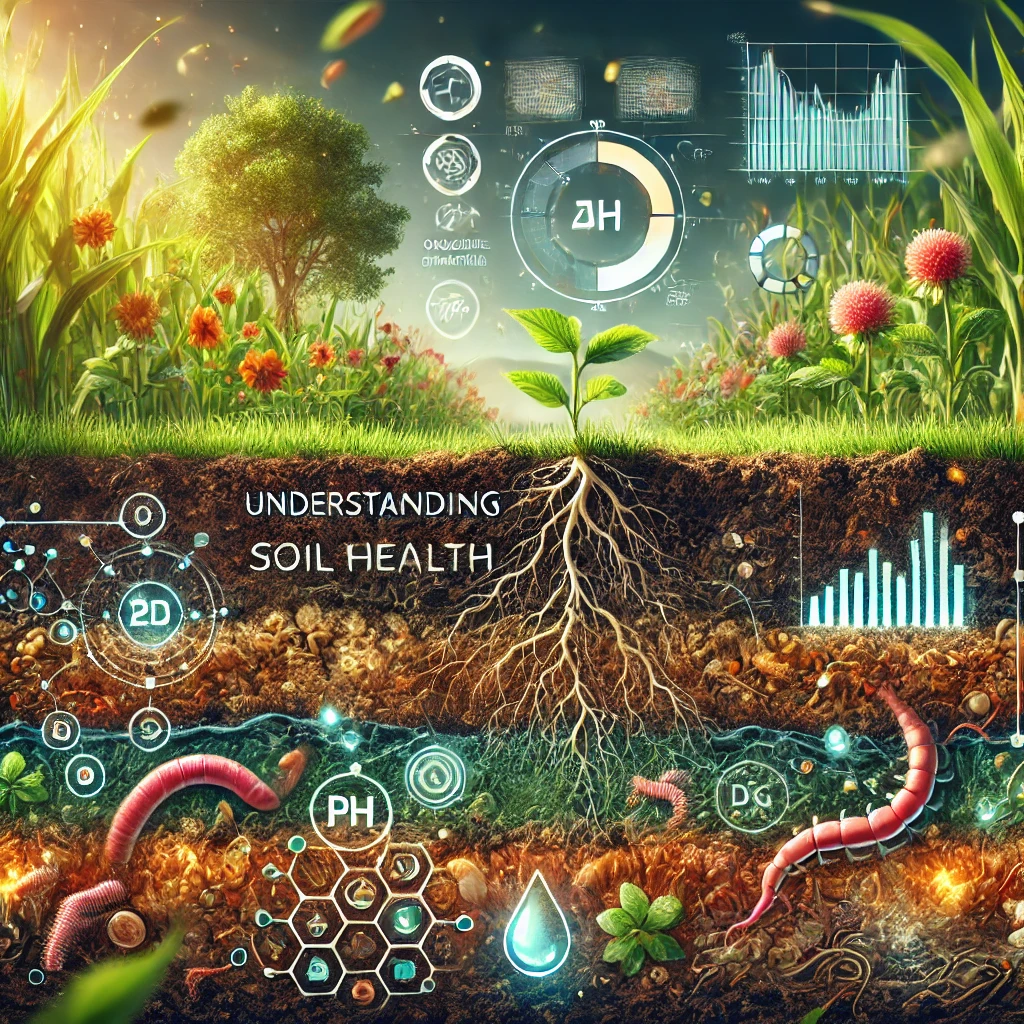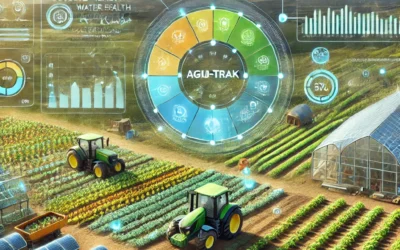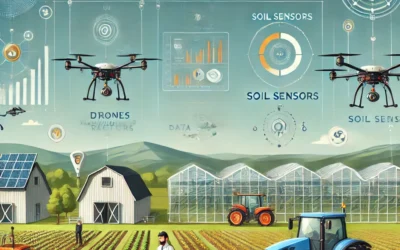Soil health is the foundation of any successful farming operation. Healthy soil not only supports the growth of crops but also contributes to water retention, nutrient cycling, and biodiversity. However, soil degradation, caused by factors such as overuse of chemicals, erosion, and poor farming practices, can reduce crop yields and long-term sustainability. In this article, we will explore the key factors that contribute to soil health and provide tips on how farmers can improve it.
1. Soil Structure and Composition
Soil structure refers to how individual soil particles, such as sand, silt, and clay, are arranged. Healthy soil has a well-aggregated structure that allows for good water infiltration, root penetration, and aeration. The composition of the soil, or its texture, also plays a crucial role in soil health. Sandy soils drain quickly but may lack nutrients, while clay soils retain water but can become compacted easily.
Improving soil structure involves adding organic matter, such as compost or cover crops, which help bind soil particles together and create a looser, more porous structure. Cover crops, such as legumes and grasses, can also help prevent soil erosion and enhance soil organic matter content.
2. Soil pH and Nutrient Availability
The pH of the soil determines how acidic or alkaline it is, and it plays a significant role in nutrient availability. Most crops prefer a slightly acidic to neutral pH range of 6.0 to 7.0. If the pH is too low (acidic) or too high (alkaline), essential nutrients like nitrogen, phosphorus, and potassium may become unavailable to plants.
Farmers can improve soil pH by applying lime to raise the pH of acidic soils or sulfur to lower the pH of alkaline soils. Regular soil testing is essential to monitor pH levels and ensure that crops have access to the nutrients they need for optimal growth.
3. Soil Organic Matter
Soil organic matter is the decayed remains of plants, animals, and microorganisms, and it is critical for soil health. Organic matter improves soil structure, water retention, and nutrient availability, making it easier for plants to grow. It also supports a diverse community of beneficial microorganisms that help break down organic material and release nutrients back into the soil.
To increase soil organic matter, farmers can incorporate crop residues, compost, and manure into their fields. Crop rotation and the use of cover crops also contribute to organic matter accumulation, as they reduce soil erosion and promote microbial activity.
4. Soil Erosion Prevention
Soil erosion is a major threat to soil health, as it removes the top layer of soil, which is rich in nutrients and organic matter. Erosion can be caused by wind, water, and poor land management practices. Once soil is lost to erosion, it is difficult to recover, making prevention key to maintaining healthy soil.
Farmers can reduce soil erosion by practicing no-till or reduced-till farming, which minimizes soil disturbance and helps retain organic matter. Additionally, planting cover crops and using contour farming techniques can help prevent erosion by stabilizing the soil and reducing runoff.
5. Soil Biodiversity
A healthy soil ecosystem is teeming with microorganisms, such as bacteria, fungi, and earthworms, that play vital roles in nutrient cycling and organic matter decomposition. These organisms contribute to soil fertility and help protect plants from diseases.
Farmers can support soil biodiversity by avoiding the overuse of synthetic chemicals, which can harm beneficial microorganisms. Organic farming practices, such as the use of compost and natural pest control methods, help maintain a diverse and thriving soil ecosystem.
Conclusion
Soil health is critical for sustainable farming and long-term productivity. By focusing on key factors such as soil structure, pH, organic matter, erosion prevention, and biodiversity, farmers can improve soil quality and ensure the success of their crops. Implementing practices like crop rotation, cover cropping, and organic matter addition will not only boost yields but also promote environmental sustainability and soil resilience for future generations.








